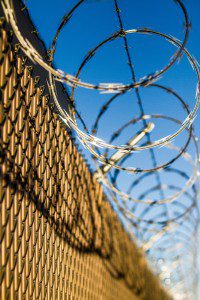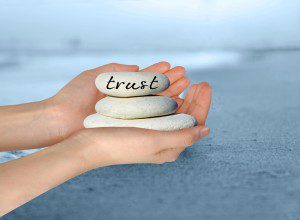 Dear Thoughtful Pastor: What do you do if you know a person is going to do something bad but has not executed it. Is there any way to stop them? You have no hard evidence of their actions but you know the person well enough to be pretty sure that there’s going to be a terrible outcome.
Dear Thoughtful Pastor: What do you do if you know a person is going to do something bad but has not executed it. Is there any way to stop them? You have no hard evidence of their actions but you know the person well enough to be pretty sure that there’s going to be a terrible outcome.
The short answer to “is there any way to stop them is “no.” But if we really want a “yes” here, let’s look at possibilities.
One: Suspect everyone and stop and search anyone who “looks suspicious,” however that may be defined.
Main problem: This has been tried in NYC with dismal results and has now been abandoned as a helpful tactic. “Stop and frisk” essentially means that people, particularly men of color, are routinely pulled over and told to put their hands on the car while some other person touches all their intimate parts. The result: harassed, embarrassed, and stressed-because-they-are-late people along with exacerbated racial tensions.
Two: Suspect everyone and spy on everyone. We’re pretty close to that with the number of CCTV’s (closed caption TV cameras) spying on everyone these days. It is estimated, for example, that people who live in London are photographed 300 times each hour.
Main problem: Statistics concerning the effectiveness of ubiquitous CCTV’s are hard to find. However, it has become clear that the expense of camera equipment and maintenance has left communities with fewer law enforcement personnel actually out on the streets. One of the most effective community policing tactics, that of showing their faces and getting to know the people in the areas, gets increasingly neglected.
 Three: Suspect everyone and proactively round up and imprison those who might possibly commit a bad act.
Three: Suspect everyone and proactively round up and imprison those who might possibly commit a bad act.
Main problem: We tried it with the Japanese at the beginning of WWII. By doing so, we effectively destroyed thousands of utterly innocent people with not one piece of evidence against them. This violated everything we stand for as a country founded on civil liberties. We might want to learn from that piece of fear-based reactionary policy decision: it is just a bad, a very bad, idea.
Here’s the real issue: life is messy, complex and at times just plain dangerous. Always has been, always will be.
We’re all capable of seriously evil actions. People are going to do truly bad things to done another. But . . . the vast majority of humans also love each other, help each other, collaborate to do wonderful things with each other and create life with each other.
This, in my opinion, is why we need the church. We need places where people are given the tools to mature spiritually, to learn to love God and to practice genuinely loving one another, to find ways to serve the world around them, to discover purpose in life and hope for the future.
We also need greater development of healthy, economically vibrant communities. We do need to be genuinely concerned about the people most likely to be radicalized, whether it be by religious zealots like ISIS or by racist zealots such as David Duke and his Ku Klux Klan compatriots.
Often it is hopelessness that drives radicalism. What can our society, our churches, our government to do bring hope?
Furthermore, how can we do a better job supporting those who have mental illnesses? This calls for the removal of any stigma yet remaining about those who suffer from them. Mental illnesses are no different from physical illnesses or incapacities. Things just go wrong in the brain as they do in the body.
It’s important to acknowledge that the growing sentiment towards more safety will end up ultimately eroding almost all liberties. If we try to cleanse our society of any that might do harm, we will end up in a police state.
As much as we want to say, “This will never happen again” to the latest tragedy or attack, it would be more helpful to face the truth: stuff like this will happen again.
 People are going to get hurt. Innocents will be killed, maimed, scarred for life. I wish it were not the case. But, frankly, the alternative is actually worse.
People are going to get hurt. Innocents will be killed, maimed, scarred for life. I wish it were not the case. But, frankly, the alternative is actually worse.
Ultimately, it comes down to this: each of us must decide if we are going to approach the world with suspicion or with trust. Probably 99% of the time, the trust approach works.
But we will always be faced with the 1% who are determined to murder and destroy. When we take one person or group down, another pops up. We can and should address the underlying causes, we can and must vocalize our concerns, we can even report our suspicions to the proper authorities, but we can’t preemptively stop an act just because we think it might happen.
 [Note: a version of this column is scheduled to run in the Oct 7, 2016, edition of the Denton Record Chronicle. The Thoughtful Pastor, AKA Christy Thomas, welcomes all questions for the column. Although the questioner will not be identified, I do need a name and verifiable contact information in case the newspaper editor has need of it. Please email questions to: [email protected].]
[Note: a version of this column is scheduled to run in the Oct 7, 2016, edition of the Denton Record Chronicle. The Thoughtful Pastor, AKA Christy Thomas, welcomes all questions for the column. Although the questioner will not be identified, I do need a name and verifiable contact information in case the newspaper editor has need of it. Please email questions to: [email protected].]













